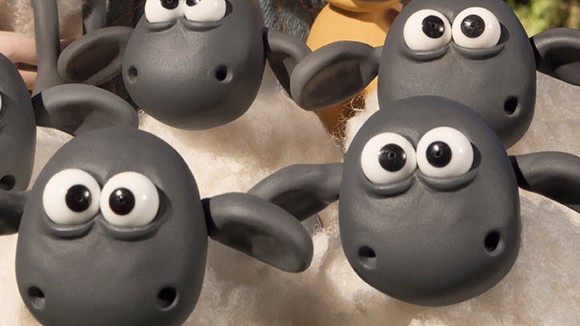

‘Shaun the Sheep Movie’ Opening is Baaaaa-d
The Aardman theatrical animation brand has become all but obsolete in the United States. The studio’s latest film Shaun the Sheep Movie had a disastrous U.S. launch, debuting in eleventh place with an estimated $4 million. The Mark Burton and Richard Starzak-directed film has earned just $5.6M since opening on Wednesday opening.
Its $1,724 per-theater average puts it between last year’s Legends of Oz: Dorothy’s Return, which had a $1,410 per-theater average and this year’s Lucasfilm’s Strange Magic, which had an $1,823 per-theater average. Both of those films were reviled by critics and audiences alike, while Shaun the Sheep is the best-reviewed animated film of the year so far and had the best Cinemascore audience rating — B+ — of any new film opening this weekend.
Lionsgate paid somewhere in the range of $1-2 million to acquire the film for U.S. distribution. After all of their marketing and distribution costs are taken into account, the film would have to earn in the mid-teens for Lionsgate to break even, according to Deadline.
It would be easy to pin the blame on Lionsgate’s marketing department, but Aardman’s star has been fading globally for years. Since their first feature, Chicken Run in 2000, each Aardman film has earned less globally than the previous film. That downward trend has nothing to do with Lionsgate since this is the first Aardman project they’ve handled in the U.S., and the signs of a box office flop were evident to us long before the film opened.
To look at the positive side, Aardman’s box office woes may have bottomed out with Shaun the Sheep Movie. Their next film, Early Man, marks the directorial return of Aardman superstar Nick Park, which should result in an audience boost solely on his Wallace and Gromit reputation.
But that doesn’t address the root of Aardman’s woes: their visual and comedic stylings, which felt fresh twenty-five years ago, have been so endlessly copied both by others and themselves that the mere sight of their work now feels stale and predictable. Shaun may have been a great film, but Aardman’s approach feels too much been-there, done-that to filmgoers.
The staleness factor afflicts all animation studios that have had the good fortune of being in business as long as Aardman. DreamWorks Animation is currently battling its own creative slide coupled with negative audience perceptions, and until just a few years ago, Disney’s feature animation department was an also-ran until they reinvented themselves as a CG animation studio.
Other animation box office highlights from this weekend:
* Illumination/Universal’s Minions passed $300 million at the U.S. box office and $900 million globally. Its $7.4M (est.) weekend total was good for 6th place in the States where it was scored $302.8M to date. The yellow goons still have their sights set on $1 billion in global box office, which seems especially likely after the film opens in China next month.
* Pixar/Disney’s Inside Out finally fell out out of the U.S. top ten in its 8th weekend. Its gross of $2.7M pushed its total to $335.4M, and it now looks likely that the film will surpass Finding Nemo to become Pixar’s second-highest grossing U.S. film of all-time, as well as the company’s highest-grossing original film of all-time. Globally, the film passed The Incredibles and Ratatouille this week, and has now earned $635.5M.
* Funimation’s Dragon Ball Z: Resurrection F continued its remarkable one-week limited engagement run, grossing $1.36M on Saturday and a five-day (Tues-Sat) total of $5.58M in North America. The film has surpassed Hayao Miyazaki’s The Wind Rises and Howl’s Moving Castle to become the 9th highest-grossing anime release in America. It marks the first time an independent distributor has cracked the top ten U.S. anime releases.
* GKIDS opened Kahlil Gibran’s The Prophet in two U.S. theaters and picked up $26,600. The film’s $13,300 per-theater average was the second-highest of any film in America.
* China’s live-action/animation hybrid Monster Hunt, directed by PDI/DreamWorks Animation veteran Raman Hui, boosted its phenomenal total to $330 million, becoming China’s highest-grossing homegrown film of all-time and second-highest grossing film ever, behind just Furious 7 ($391 million).

